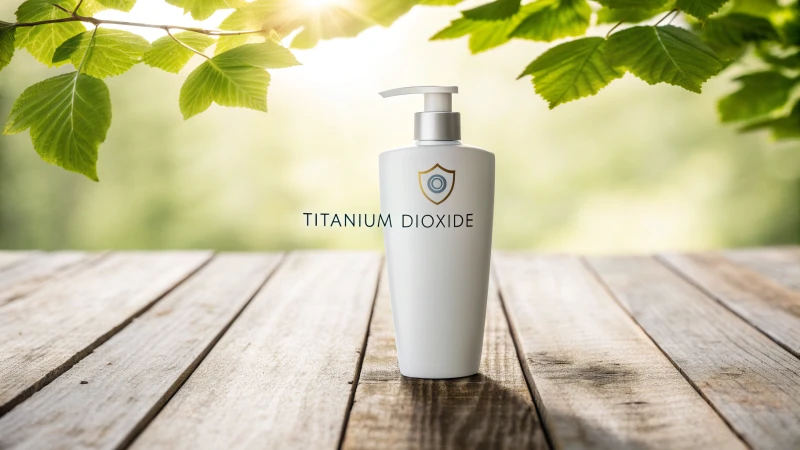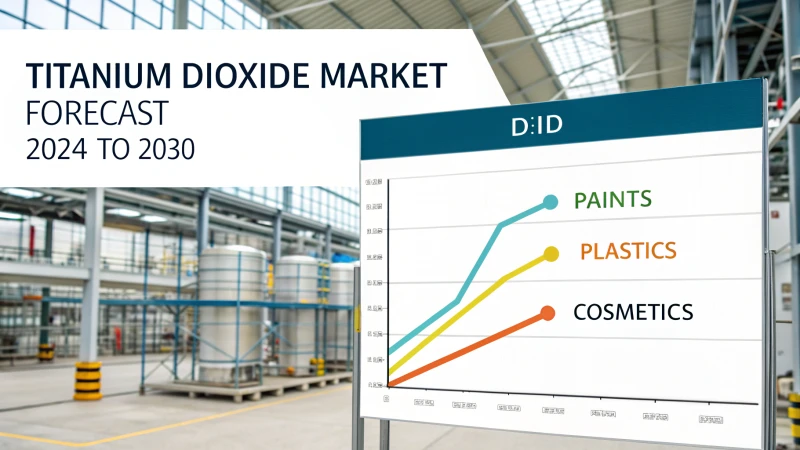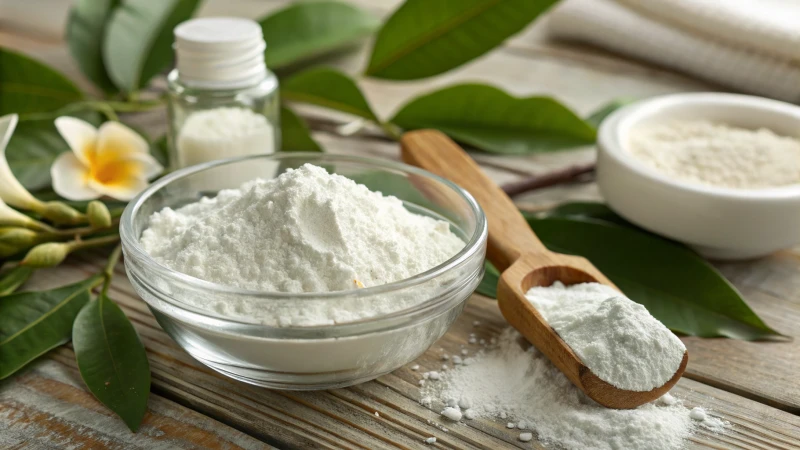
I once stood in a grocery aisle, wondering if my sunscreen was as ethical as I hoped.
Titanium dioxide (TiO₂) is generally considered vegan because it’s a mineral-based ingredient with no animal-derived components. However, its cruelty-free status can differ based on the company’s animal testing practices, so it’s important to check their policies.
Understanding the ethical nuances of titanium dioxide means looking beyond its vegan label to consider how it’s tested. This journey requires diving into the broader industry practices of animal testing. Here, I’ll share insights for those of us committed to making ethical choices, because like you, I want my purchases to reflect my values.
[claim claim=”Titanium dioxide is always cruelty-free.” istrue=”false” explanation=”Its cruelty-free status depends on the company’s testing practices.”]
[claim claim=”Titanium dioxide is a mineral-based ingredient.” istrue=”true” explanation=”Titanium dioxide is derived from minerals and not animal sources.”]
Why is Titanium Dioxide Considered Vegan?
Exploring whether titanium dioxide aligns with a vegan lifestyle can feel like unraveling a mystery. Let’s dive into why this common ingredient in cosmetics and food is often deemed vegan-friendly.
Titanium dioxide is vegan because it’s a mineral extracted from the earth without using animal products. Its production avoids animal-derived substances, aligning with vegan principles.
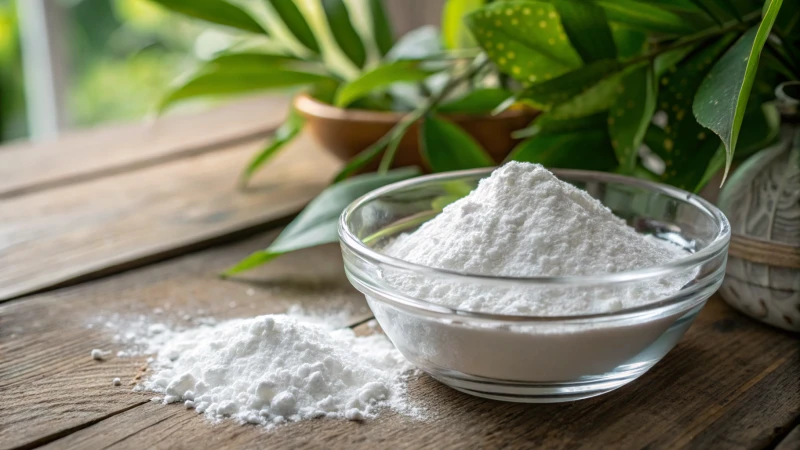
Understanding Titanium Dioxide’s Origins
I remember when I first learned about titanium dioxide; it felt like discovering a hidden treasure. This naturally occurring mineral is drawn from titanium-rich ores1, which means it doesn’t involve any animal byproducts. This mineral composition keeps it firmly within the bounds of vegan standards.
| Source | Process | Animal Involvement |
|---|---|---|
| Natural Ores | Extraction and Refinement | None |
The Production Process
In my journey to understand the intricacies of titanium dioxide, I was amazed by its purification process. It’s refined into a pure white pigment through entirely mechanical and chemical methods, ensuring no animal-based inputs2 sneak in.
Vegan Certification and Assurance
For many of us who strive to maintain ethical standards, vegan certification is a comforting seal of approval. Organizations like the Vegan Society ensure that products containing titanium dioxide exclude animal testing3 and animal-derived substances, providing assurance for conscious consumers.
Common Uses in Vegan Products
I’ve often found titanium dioxide in my favorite vegan cosmetics and foods, acting as a trusty whitening agent. For example, it’s used in plant-based milks and cosmetics formulations4 to enhance their appearance while staying true to vegan integrity.
| Product Type | Purpose | Vegan Compatibility |
|---|---|---|
| Plant-Based Milks | Whitening Agent | Compatible |
| Cosmetics | Pigmentation | Compatible |
Ethical Considerations Beyond Veganism
While titanium dioxide itself is vegan, I often ponder its broader ethical implications, like environmental concerns. The sourcing and processing of this mineral can impact the environment, encouraging companies to adopt sustainable practices.
By choosing brands that prioritize environmental sustainability5, we can ensure that our vegan products are also kind to the planet. Understanding the production and sourcing of titanium dioxide empowers us to make choices that reflect our values, supporting products that are both vegan and ethically produced.
[claim claim=”Titanium dioxide is derived from animal products.” istrue=”false” explanation=”Titanium dioxide is extracted from natural ores, not animal products.”]
[claim claim=”Vegan certification ensures no animal testing for titanium dioxide.” istrue=”true” explanation=”Organizations like the Vegan Society certify products free from animal testing.”]
How Do Testing Practices Impact Cruelty-Free Claims?
Ever wondered what really goes into making a product genuinely cruelty-free? Let’s peel back the layers on testing practices and their impact on these claims.
Testing practices are crucial to cruelty-free claims because they determine if any animal testing occurred during product development. Certified cruelty-free products meet ethical standards by ensuring no animal testing is involved.
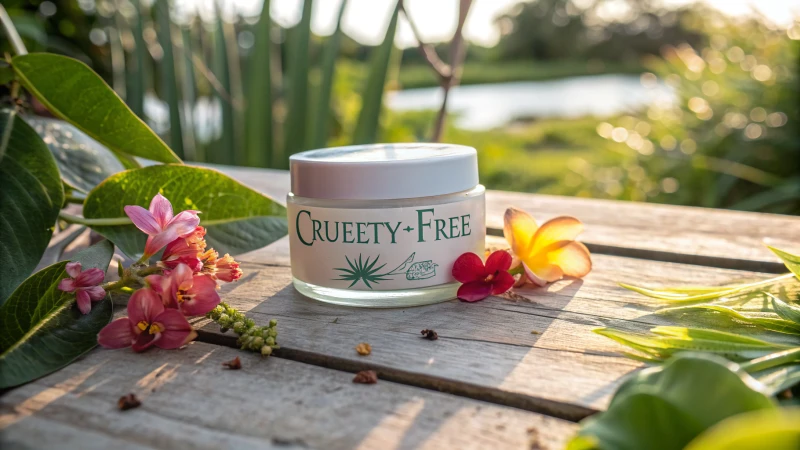
Understanding Testing Practices
When I first started diving into the world of cruelty-free products, I realized it wasn’t just a trendy label; it was a promise. Companies claiming "cruelty-free" must ensure that neither their products nor any ingredients6 have been tested on animals. This commitment is validated through certifications from groups like Leaping Bunny, which demand rigorous adherence to ethical standards.
Certification and Regulatory Implications
There are several certifying bodies with unique criteria for cruelty-free certification. For instance, Leaping Bunny requires companies to establish supplier monitoring systems to ensure compliance. However, there’s a hitch: some regions still mandate animal testing due to regulatory requirements7, adding layers of complexity to these claims.
| Certification Body | Key Requirements |
|---|---|
| Leaping Bunny | Supplier monitoring, no animal testing at any stage |
| Cruelty-Free International | No animal testing, transparent supply chain verification |
Consumer Awareness and Responsibility
As someone who’s become more conscious of these issues, I’ve noticed that consumers are now looking beyond labels. They are digging deeper into company policies on animal testing. By supporting brands that invest in alternative testing methods8, we can push the industry towards more ethical practices.
Industry Shifts and Challenges
There’s a significant shift happening in the cosmetic industry with new alternatives like in vitro methods and computer simulations gaining momentum. However, there are still hurdles, especially in markets with strict regulations9 requiring animal testing for safety checks. Understanding these dynamics helps us make informed choices and support brands aligned with our values.
[claim claim=”All cruelty-free products are certified by Leaping Bunny.” istrue=”false” explanation=”Not all cruelty-free products are certified by Leaping Bunny; other bodies exist.”]
[claim claim=”Animal testing is mandatory in some regions despite cruelty-free claims.” istrue=”true” explanation=”Some regions require animal testing, complicating cruelty-free certifications.”]
How Do I Know Which Products Are Certified Cruelty-Free?
Ever felt the tug of conscience while shopping, wondering if your products are truly cruelty-free?
Yes, there are well-known certification bodies for cruelty-free products, like Leaping Bunny, PETA, and Cruelty-Free International. These organizations certify brands that strictly adhere to no-animal-testing policies, offering logos that guide consumers in making ethical choices.
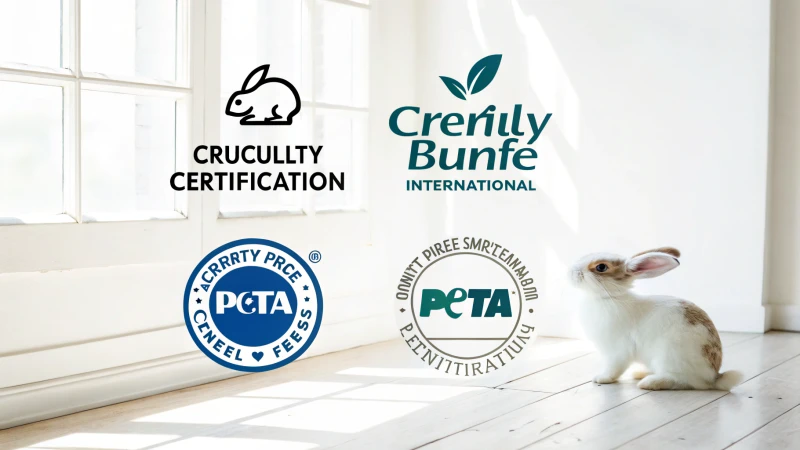
When I first started my journey towards ethical consumerism, the landscape was daunting. I remember standing in an aisle, overwhelmed by labels and promises. It was a relief when I learned about reliable certification bodies that actually do the legwork for us.
Key Certification Bodies
These organizations are like my guiding stars in the vast sky of consumer goods:
- Leaping Bunny: This is globally recognized and was one of the first certifications I looked for. Their standards are strict, ensuring none of a brand’s suppliers or manufacturers test on animals.
- PETA’s Beauty Without Bunnies: I often spot their logo when browsing through beauty products. Companies under this program pledge no animal testing through a signed assurance statement.
- Cruelty-Free International: They focus heavily on animal welfare, and their certification is one I trust when I want to make sure a product’s ethical claims hold up.
| Certification Body | Key Requirement | Logo Display |
|---|---|---|
| Leaping Bunny | No animal testing at any stage | 🐇 |
| PETA’s Beauty Without Bunnies | Assurance statement | 🐰 |
| Cruelty-Free International | Ethical manufacturing | 🐇 |
Why Certification Matters
For me, knowing a product is certified means I’m supporting brands that value ethics over shortcuts. With more regions banning animal testing, certifications like Leaping Bunny10 are becoming even more critical. When I choose these products, I’m part of a bigger movement influencing market trends towards more humane practices.
How Brands Achieve Certification
From what I’ve gathered in my research:
- Third-party audits: This is like having a trusted friend verify claims so you know they’re genuine. Brands undergo thorough checks to comply with no-animal-testing policies11.
- Documentation: It’s reassuring to know companies have to provide detailed records of their sourcing and testing methods.
- Renewal and Monitoring: Regular inspections ensure they maintain high standards.
Consumer Influence
Every time I choose a certified product, I feel like I’m casting a vote for better practices. It’s empowering to think my choices help drive demand for ethical options. Looking for cruelty-free labels12 doesn’t just align my purchases with my values; it supports humane practices and pushes for wider acceptance of ethical standards.
Being informed about these certifications has transformed my shopping habits, aligning them with my values and making every purchase a little victory for ethical consumerism.
[claim claim=”Leaping Bunny requires no animal testing at any stage.” istrue=”true” explanation=”Leaping Bunny mandates that brands ensure no animal testing occurs at any stage.”]
[claim claim=”PETA’s certification involves third-party audits.” istrue=”false” explanation=”PETA’s Beauty Without Bunnies relies on assurance statements, not audits.”]
How Can I Ensure My Products Are Ethical?
Ever wondered if your shopping habits align with your values? Ethical consumerism is more than a trend—it’s a conscious choice.
To ensure the products I buy are ethical, I focus on certifications, investigate company practices, and choose brands that are transparent about their sourcing, production, and testing methods.
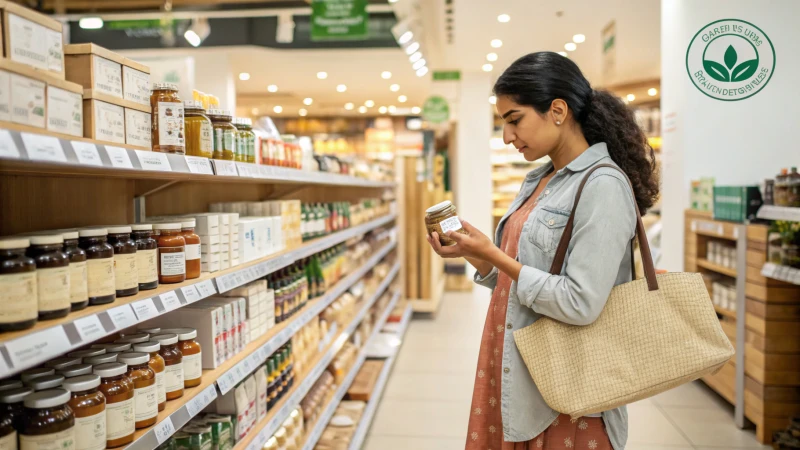
Understanding Certifications
Navigating the world of certifications can be tricky, but it’s a crucial first step in making sure what I buy aligns with my values. When I see labels like Fair Trade, USDA Organic, or Rainforest Alliance on a product, it’s like a green light telling me this purchase supports fair wages or sustainable farming. It’s my way of putting my money where my heart is.
- Fair Trade: This label reassures me that farmers and workers receive fair wages and decent working conditions.
- USDA Organic: It’s comforting to know that no synthetic pesticides or fertilizers touch the food I consume.
- Rainforest Alliance: Choosing products with this label means I’m supporting sustainable agricultural practices.
These certifications act like a compass guiding me towards more ethical choices whenever I’m out shopping.
Researching Company Practices
I’ve learned that a little detective work goes a long way in ensuring the companies I support are ethical. I dive into how they source materials, treat their workers, and manage waste. Often, companies will share their sustainability reports13, which offer a peek behind the curtain at their operations.
I also rely on tools like the Good On You app. It’s been a game-changer in rating companies on their labor practices, environmental impact, and treatment of animals. It feels empowering to have this kind of information at my fingertips.
Prioritizing Transparency
In my quest for ethical products, transparency is key. I look for brands that openly share details about their supply chains and manufacturing processes. Supporting companies that disclose where they source materials or how they produce goods gives me confidence that they’re upholding ethical standards.
| Key Factor | What to Look For |
|---|---|
| Sourcing | Details on material origins |
| Production | Open disclosure of manufacturing sites |
| Testing Methods | Alternatives to animal testing |
Encouraging Ethical Practices
By choosing to buy from brands that prioritize ethical practices, I send a strong message to the market. Whether it’s picking a company that invests in alternative testing methods14 or one that’s committed to reducing its carbon footprint, each purchase I make is like casting a vote for what I believe in.
Utilizing Technology for Ethical Choices
Technology has become an ally in my journey towards more ethical shopping habits. Apps like "Buycott" are fantastic because they let me scan product barcodes to uncover a company’s ethical standing. This makes it easier for me to ensure my spending aligns with my values.
Through these steps and tools, I’m not just shopping—I’m advocating for a world that reflects my ideals every time I open my wallet. It’s all about making informed decisions that contribute to the greater good.
[claim claim=”Fair Trade ensures fair wages for workers.” istrue=”true” explanation=”Fair Trade certification verifies fair wages and conditions for workers.”]
[claim claim=”Rainforest Alliance allows synthetic pesticides.” istrue=”false” explanation=”Rainforest Alliance promotes sustainable practices, excluding synthetic pesticides.”]
Conclusion
Titanium dioxide (TiO₂) is vegan as it’s mineral-based, but its cruelty-free status varies by company practices. Consumers should check certifications to ensure ethical choices.
-
Learn about the natural ores where titanium dioxide originates, providing insight into its vegan-friendly attributes. ↩
-
Discover the refining process of titanium dioxide, ensuring no animal involvement. ↩
-
Explore how vegan certification ensures products like titanium dioxide adhere to ethical standards. ↩
-
Find out how titanium dioxide enhances cosmetic formulations without compromising vegan integrity. ↩
-
Understand how sustainability efforts align with vegan principles in product manufacturing. ↩
-
Explore the stringent standards set by Leaping Bunny to ensure no animal testing is involved in product development. ↩
-
Learn which countries still mandate animal testing, affecting cruelty-free claims despite certification efforts. ↩
-
Discover innovative methods replacing animal testing, promoting cruelty-free claims in the cosmetics industry. ↩
-
Understand the legal mandates affecting cosmetic safety testing and their impact on cruelty-free product labeling. ↩
-
Discover how Leaping Bunny ensures comprehensive cruelty-free standards across all manufacturing stages. ↩
-
Learn why third-party audits are crucial for maintaining credibility in cruelty-free certifications. ↩
-
Understand how to recognize genuine cruelty-free labels, helping you make ethical purchasing decisions. ↩
-
Discover detailed insights into company operations, including sourcing and environmental impact. ↩
-
Learn about innovative non-animal testing methods that companies are adopting. ↩




